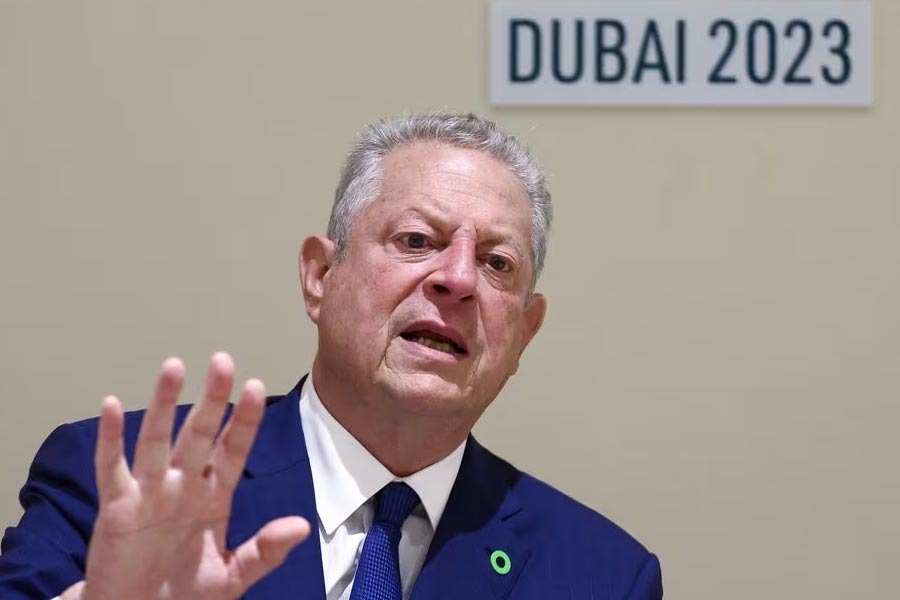Gore Scorches UAE at COP28: “Emission Exploding!”

Former US Vice President Al Gore has recently ignited a heated debate at the 28th session of the Conference of the Parties (COP28) by accusing the United Arab Emirates (UAE) of experiencing exponential emission growth. The controversial remark comes as a stark blow to the UAE’s aspirations of becoming a climate leader in the region.
1. Rising Star Tarnished:
The UAE’s efforts to position itself as a global climate champion have been undermined by Al Gore’s allegations. While the country has made significant strides in diversifying its economy, moving away from oil dependency, and investing in renewable energy, the claim of exponential emission growth is now casting uncertainty over these claims.
2. Al Gore’s Accusations:
Addressing the delegates present at COP28, Al Gore called out the UAE for what he described as “unabated exponential emission growth.” Though the former Vice President did not provide specific evidence or figures to back up his allegations, his remarks have opened a Pandora’s box of discussions and reactions.
3. UAE’s Climate Actions:
The UAE has garnered international recognition for various climate actions, including the establishment of the UAE Energy Strategy 2050, which aims to increase clean energy contributions to 50% by 2050. The country has also made considerable investments in solar power and has initiated several ambitious sustainable development projects. However, Al Gore’s claims have prompted increased scrutiny of the UAE’s overall performance.

4. Regional Climate Rivalries:
The Gulf region has recently witnessed a race among its wealthy nations to showcase their commitment to combating climate change. Qatar, Saudi Arabia, and the UAE have all presented their ambitious plans, seeking to outdo one another. With Al Gore’s accusations, these regional climate rivalries are likely to intensify further, creating a challenging environment for COP28 negotiations.
5. Rebuttals and Diplomatic Tensions:
The UAE’s representatives at COP28 have promptly denied Al Gore’s allegations, terming them as baseless and lacking factual evidence. Diplomatic tensions remain on the rise, with UAE officials vowing to investigate the origin of these claims and demanding a public apology from the former US Vice President.
6. The Need for Transparency:
Al Gore’s statements have brought to light the pressing need for transparency and accurate data reporting when it comes to countries’ environmental performance. Accusations like these shine the spotlight on the importance of reliable emissions tracking, not just in the UAE but in all nations worldwide.
7. COP28’s Key Focus:
With the emergence of this controversy, COP28 is now tasked with addressing not only the challenges of global climate action but also the need for better accountability and transparency among participating nations. The conference must use this opportunity to forge a path towards factual, credible, and unbiased reporting on emission growth.
Al Gore’s accusations against the UAE of exponential emission growth have sent shockwaves throughout the international climate community. As COP28 continues, the focus now shifts towards addressing regional climate rivalries, ensuring transparency, and discussing the best ways to hold countries accountable for their emissions. The ramifications of this controversy are likely to be felt long after the conference concludes, making it a defining moment in the global fight against climate change.

- Art
- Causes
- Best Offers
- Crafts
- Dance
- Drinks
- Film
- Fitness
- Food
- Spellen
- Festival
- Gardening
- Health
- Home
- Literature
- Music
- Networking
- Other
- Party
- Religion
- Shopping
- Sports
- Theater
- Wellness



